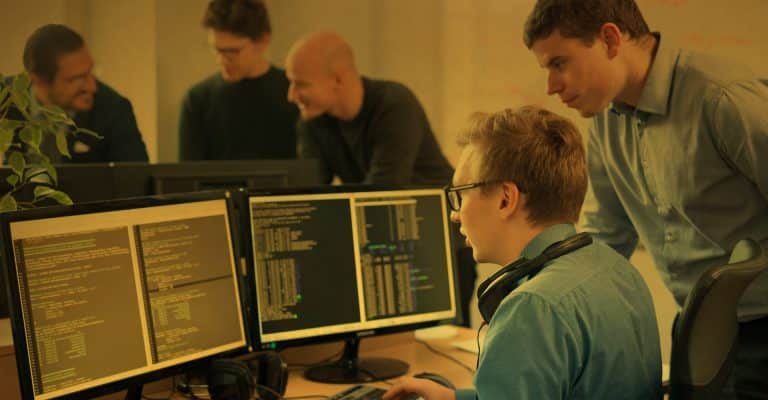- RESEARCHDistance Learning at AIU is enhanced by vast academic resources and innovative technologies build into the Virtual Campus: Hundreds of self-paced courses with video lectures and step by step lessons, thousands of optional assignments, 140,000 e-books, the Social Media & Networking platform allowing collaboration/chat/communications between students, and MYAIU develop students holistically in 11 areas beyond just academics.
- PROGRAMS OFFERED
- Areas of Study
- Courses and Curriculum
- Open Courses
- Register for a Program
- Associate Program
- Associate in Addiction Counseling
- Associate in Agriculture Food And Resources
- Associate in Anti Terrorism Security
- Associate in Behavior Analysis In Special Education
- Associate in Bioethics
- Associate in Climatology
- Associate in Cultural Theological Communication
- Associate in Culinary Arts
- Associate in Ecotechnology
- View all Associates Programs
- Bachelor Program
- Bachelors in Community Development
- Bachelors in Environmental Science
- Bachelor in Education (B.Ed, BS)
- Bachelors in Economics
- Bachelors in Entrepreneurship
- Bachelors in Financial Administration
- Bachelors in Human Resource Management
- Bachelors in Linguistics
- Bachelors in Nutritional Science
- Bachelors in Occupational Health and Safety
- Bachelors in Psychology
- View all Bachelor Programs
- Doctorate Program
- Doctor | of Biology (PhD)
- Doctorate in Business Administration (DBA, PhD)
- Doctor of Economics (PhD)
- Doctor of Electrical Engineering (D.Sc, PhD)
- Doctor of Finance (PhD)
- Doctorate in International Relations
- Doctorate in Information Technology (D.Sc)
- Doctor of Legal Studies (PhD)
- Doctor of Project Management (PhD)
- Doctor of Sociology (PhD, D.Sc)
- Doctorate in Sustainable Natural Resources Management
- View all Doctorate Programs
- Master Program
- Postdoctoral Program
- Postdoctoral in Animal Science
- Postdoctoral in Anti Terrorism Security
- Postdoctoral in Behavior Analysis In Special Education
- Postdoctoral in Bioethics
- Postdoctoral in Blockchain Technology and Digital Currency
- Postdoctoral in Business Management
- Postdoctoral in Cloud Computing
- Postdoctoral in Computer Engineering
- View all Postdoctoral Programs
AIU offers a wide range of majors in areas including the Arts, Business, Science, Technology, Social, and Human studies. More than 120 degrees and programs are available for adult learners at the associate’s, bachelor’s, master’s, doctoral and postdoctoral level. - VIRTUAL CAMPUS
Distance Learning at AIU is enhanced by vast academic resources and innovative technologies build into the Virtual Campus: Hundreds of self-paced courses with video lectures and step by step lessons, thousands of optional assignments, 140,000 e-books, the Social Media & Networking platform allowing collaboration/chat/communications between students, and MYAIU develop students holistically in 11 areas beyond just academics.
- ALUMNI
The world is YOUR campus!”, that is the message of AIU’s month magazine Campus Mundi. Hear the voices and see the faces that make up AIU. Campus Mundi brings the world of AIU to you every months with inspirational stories, news and achievements by AIU members from around the world (students and staff are located in over 200 countries).
Marine Botany
Light's Impact on Marine Algae Photosynthesis
This document explores the critical role of light in the photosynthesis of marine algae, detailing how different light conditions—intensity and quality—affect their growth and productivity. It highlights adaptations of various algal groups to optimize light absorption, emphasizing the interplay between light and other environmental factors in marine ecosystems.

Marine Biology and Sustainable Tourism
The document examines the essential role of light in the photosynthesis of marine algae, which are crucial for their growth and productivity. It begins by defining the concept of depth in marine environments, where total respiration surpasses total photosynthesis, leading to negative net primary production.
The impact of light intensity on marine algae is discussed, noting that optimal light levels enhance photosynthesis and promote rapid growth. Conversely, both low and high light conditions can hinder algal growth. In low light environments, such as deeper waters or turbid coastal areas, marine algae experience reduced photosynthetic activity due to insufficient energy for carbon fixation. To adapt, many species, including red and brown algae, have developed accessory pigments like phycoerythrin and fucoxanthin, which allow them to absorb wavelengths of light that penetrate deeper into the water. However, prolonged exposure to low light can still result in decreased growth rates and biomass production.
In contrast, high light conditions in shallow waters can lead to photoinhibition, where excessive light damages the photosynthetic apparatus, particularly photosystem II. This occurs when the absorption of light exceeds the algae’s capacity to utilize it for photosynthesis, resulting in harmful reactive oxygen species. Algae in these environments must balance the need for light energy with the risk of photoinhibition, often employing protective mechanisms such as producing antioxidants or altering their photosynthetic membranes.
The document also addresses the interaction between light and nutrient availability, emphasizing that marine algae require a balanced supply of both to maximize growth. In nutrient-rich coastal areas, increased light can lead to rapid algal blooms, while in oligotrophic (nutrient-poor) open ocean regions, high light availability does not guarantee growth due to limited access to essential nutrients like nitrogen and phosphorus.
Temperature is another critical factor influencing the photosynthetic efficiency of marine algae. Warmer temperatures can enhance metabolic rates and photosynthetic activity, provided there is sufficient light. However, excessive heat can stress algae, leading to reduced photosynthetic efficiency, especially when combined with high light levels that induce photoinhibition.
The document concludes by reiterating the importance of light in the photosynthesis and growth of marine plants, particularly marine algae. It highlights how light availability, in terms of both intensity and quality, directly influences the productivity and distribution of various algal species. Marine algae have evolved numerous adaptations to optimize light absorption across different underwater environments, from shallow, well-lit areas to deeper, low-light regions. However, light availability interacts with other environmental factors, such as nutrient levels and temperature, further determining the growth and productivity of marine algae. Understanding these dynamics is crucial for comprehending the ecological roles of marine algae in oceanic ecosystems.
Atlantic International University
Get to know the AIU experience
Contact Us Today!
We understand how busy adults do not have time to go back to school. Now, it’s possible to earn your degree in the comfort of your own home and still have time for yourself and your family. The Admissions office is here to help you, for additional information or to see if you qualify for admissions please contact us. If you are ready to apply please submit your Online Application and paste your resume and any additional comments/questions in the area provided.
Pioneer Plaza
900 Fort Street Mall 905
Honolulu, HI 96813
800-993-0066 (Toll Free in US)
808-924-9567 (Internationally)
808-947-2488 (Fax)
AIU Success Stories







Contact Us Today!
Begin Your Journey!
AIU’s Summer of Innovation and Growth gives you the ability to earn up to $5000 in tuition credit by completing free lessons and courses.
Whether you’re looking to acquire new skills, advance your career, or simply explore new interests, AIU is your gateway to a world of opportunities. With free access to 3400 lessons and hundreds of courses the ability to earn credits and earn certificates there’s no better time to start learning.
Join us today as a Guest Student and take the first step towards a brighter, more empowered future.
Explore. Learn. Achieve.
Degrees

Contact Us
Atlantic International University
900 Fort Street Mall 905 Honolulu, HI 96813 info@aiu.edu
Quick Links
Home | Online Courses | Available Courses | Virtual Campus | Career Center | Available Positions | Ask Career Coach | The Job Interview | Resume Writing | Accreditation | Areas of Study | Bachelor Degree Programs | Masters Degree Programs | Doctoral Degree Programs | Course & Curriculum | Human Rights | Online Library | Representations | Student Publication | Sponsors | General Information | Mission & Vision | School of Business and Economics | School of Science and Engineering | School of Social and Human Studies | Media Center | Admission Requirements | Apply Online | Tuition | Faculty & Staff | Distance Learning Overview | Student Testimonials | AIU Blogs | Register for Program | Privacy Policy | FAQ



















